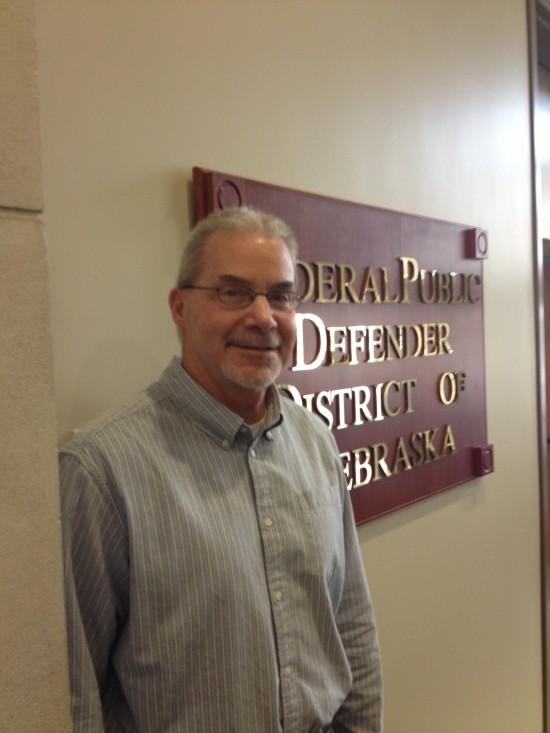
Photo credit: Abi Skipp’s photostream (Isle of Wright 2009) per Creative Commons license.
Two things make me want to put a gun in my mouth. They are bankruptcy appeals and patent disputes. In this post, I concentrate on bankruptcy cases.
Thirty years ago, I used to do quit a bit of bankruptcy work when I practiced law out in the sticks. I made $50 bucks an hour representing agricultural lenders during the farm crisis of the early ’80s. My job was take farms and ranches away from farmers and ranchers. Not tons of fun, but interesting.
I remember spending lots of time in the federal courthouse in North Platte, Nebraska, waiting for Judge Tim Mahoney to hear my case. The judge–a truly wonderful guy and a great judge–worked late into the night hearing farm credit cases. No matter how long he had been on the bench that day, he was always patient, smart, funny and a joy to practice before. Happily, most of the time, I was in a superior legal and bargaining position, so I “won” fairly frequently. But, truth be told, I privately thought that a monkey could have done just as well as I did. Nonetheless, I took my fifty bucks an hour and never looked back.
When I became a federal district judge in 1992, I quickly realized that an aggrieved party to a bankruptcy matter could “appeal” to the federal district court. All of a sudden, I had to learn what Judge Mahoney instinctively knew. Deciding these “appeals” was hard and daunting, and remains so today. Correctly applying bankruptcy law requires either specialization or a hell of lot of work. Moreover, bankruptcy cases were and are infrequent enough that a typical district judge must relearn bankruptcy stuff over and over again. To make matters worse, lots of time my otherwise helpful law clerks would be useless. Once, a clerk told me, “Judge,I don’t do math or money.”
Anyway, today, there is a wonderful modern invention called a BAP. Here is how the Administrative Office of the United States Courts describes a BAP:
Bankruptcy Appellate Panels are 3-judge panels authorized to hear appeals of bankruptcy court decisions. These panels are a unit of the federal courts of appeals.
Bankruptcy Appellate Panels (BAPs) were established under the Bankruptcy Reform Acts of 1978 and 1994. 28 U.S.C. §158 sets forth jurisdiction for appeals of bankruptcy decisions and authorizes the establishment of BAPs upon the order of the circuit judicial councils. BAP judges continue to serve as active bankruptcy judges in addition to their duties on the appellate panel.
Appeals from dispositive orders of bankruptcy judges may be taken to the district court or the BAP (if one has been established and the district has chosen to participate), with further appeal as of right to the court of appeals for the circuit. In accordance with requirements of federal statutes and procedural rules, parties may elect to file an appeal of a bankruptcy court decision with the BAP or with the district court.
The following circuits have established BAPs:
1st, 6th, 8th, 9th, and 10th Circuits.
Bankruptcy Appellate Panels, United States Courts.
With the advent of the BAP, almost all bankruptcy appeals in Nebraska go to the BAP. From my perspective, that is as it should be. The BAP–composed of very experienced bankruptcy judges–is more able than I am to process bankruptcy appeals in a timely and efficient manner. I am fortunate to be in a place where bankruptcy practitioners and their clients have the option of proceeding before the district court or before the BAP when they prosecute appeals.
This brings me to a related point. On the criminal side of things, federal district judges are specialists. After all, for federal criminal cases, we are the only game in town and we have to become specialists. On the civil side, that has never been the common view. Rather, federal district judges, when dealing with civil cases, have generally be seen as generalists. We handle diversity cases involving state law, and all manner of federal questions. We are reasonably good at handling most things that come in the door.
I am persuaded that the generalist model for the handling of civil cases in the federal district courts is a good thing except when it isn’t. As our legal systems evolve, we are likely to find more efficient and less costly ways of resolving certain types of disputes by increasingly looking to specialist tribunals. In my view, the BAP experience proves the efficacy of that idea.
Litigants, lawyers and generalist judges are all well served by the BAP. That’s why I say, “Thank God for the BAP!”
RGK




